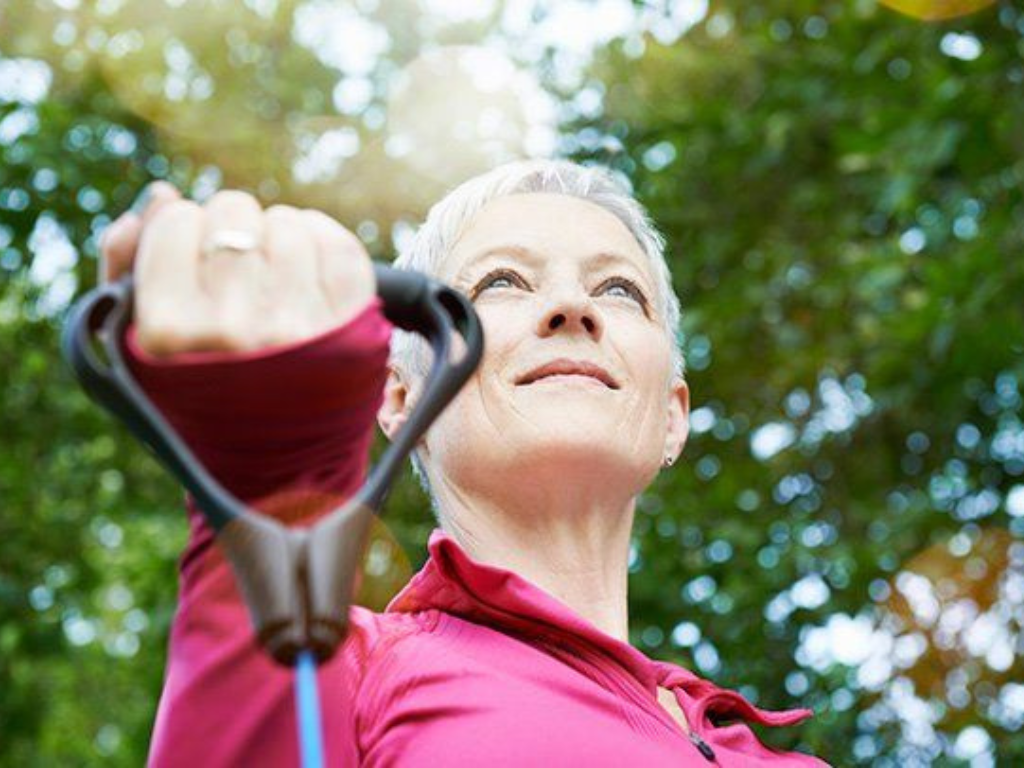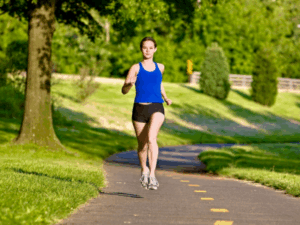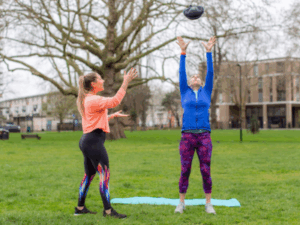Cancer treatment can be an incredibly challenging journey, both physically and mentally. The side effects of chemotherapy, radiation, and surgery can drain energy, reduce strength, and impact your overall sense of well-being. But did you know that exercise, specifically strength training and cardiovascular workouts, can be an essential part of your healing process? Staying active while going through cancer treatment has been shown to provide a wide range of physical and psychological benefits. And if you’re training in a vibrant area like Hackney, East London, where lush parks and outdoor spaces are easily accessible, you have even more opportunities to enhance your recovery by exercising in nature.
In this blog, we will discuss the importance of continuing exercise during cancer treatment, with a special focus on strength training, cardiovascular fitness, and self-care practices that can help you through this journey. We will also explore the added benefits of training outdoors in East London’s beautiful parks, such as Hackney Marshes and Victoria Park.
Strength Training: A Crucial Component of Cancer Recovery
Top Benefits of Strength Training During Cancer Treatment
Strength training, which involves lifting weights or using resistance bands, is a highly effective way to maintain and even build muscle mass during cancer treatment. Here’s why it’s so important:
Preventing Muscle Loss: Chemotherapy and radiation can cause muscle wasting, making you feel weaker and less able to perform daily tasks. Strength training helps combat this muscle loss, preserving your physical independence.
Improved Bone Density: Many cancer treatments, especially hormone therapies, can lead to a reduction in bone density, increasing the risk of fractures. Weight-bearing exercises like squats, lunges, and push-ups can strengthen your bones, reducing the likelihood of breaks and osteoporosis.
Boosted Immune System: Studies have shown that regular strength training can improve immune function, which is vital when you’re undergoing treatments that weaken your immune system. A stronger immune system helps your body fight infections and recover more efficiently from the side effects of cancer therapies.
Enhanced Mood and Mental Health: Exercising releases endorphins, also known as the “feel-good” hormones. This is especially important during cancer treatment when mental health can take a toll. Strength training helps reduce anxiety, boost self-esteem, and improve overall well-being.
Incorporating strength training into your fitness routine, whether it’s bodyweight exercises at home or a guided session with a personal trainer, can be empowering. At KB Personal Training, we specialise in designing customised strength programs that cater to your current energy levels, ensuring that you stay active and strong throughout your treatment.
Cardiovascular Fitness: Keeping Your Heart and Lungs Strong
Why Cardiovascular Fitness is Vital During Cancer Treatment
While strength training is crucial, maintaining cardiovascular fitness is just as important. Cardiovascular exercises like walking, cycling, and swimming can have a profound impact on your overall health and recovery:
Improved Circulation: Cardiovascular workouts get your blood pumping, ensuring that oxygen and nutrients are delivered efficiently throughout your body. This helps your organs function optimally, aids in healing, and can reduce cancer-related fatigue.
Heart Health: Some cancer treatments can affect heart function, so keeping your cardiovascular system strong is essential. Low-impact cardio exercises, such as brisk walking or light jogging, can help maintain heart health without putting too much strain on your body.
Boosting Energy Levels: Though it may seem counterintuitive, regular cardio exercise can actually increase your energy levels. By improving lung capacity and stamina, cardiovascular exercise can help combat the fatigue that often accompanies cancer treatments.
Weight Management: Many cancer patients experience weight fluctuations due to treatment, either gaining or losing weight unexpectedly. Cardiovascular exercise helps regulate body weight, improving body composition and overall health.
By combining strength training with cardiovascular exercise, you’re covering all the bases: you’re staying physically strong, maintaining your heart and lung health, and helping your body recover more efficiently.
The Power of Training Outdoors in Nature
Exercising outdoors brings its own unique set of benefits, particularly during such a challenging time as cancer treatment. Fortunately, Hackney and East London offer a wide range of parks and outdoor spaces where you can engage in strength and cardiovascular training, while also soaking in the therapeutic effects of nature.
Some beautiful parks to consider training in include:
Hackney Marshes: Known for its wide open spaces and fresh air, Hackney Marshes is ideal for a brisk walk, jog, or even a personal training session with a view of the River Lea. Nature here provides a calming environment that can help reduce stress levels.
Victoria Park: One of East London’s largest and most scenic parks, Victoria Park offers walking trails, serene water features, and grassy areas perfect for yoga, strength exercises, or simply stretching.
Exercising outdoors helps you reconnect with nature, which has been shown to reduce anxiety, improve mood, and even lower blood pressure. The fresh air and greenery can make your workout feel more enjoyable and less like a chore, which is particularly beneficial when energy levels are low during treatment.
Self-Care: A Holistic Approach to Cancer Treatment
Why Practicing Self-Care is Just as Important
While exercise is essential, so is taking care of your emotional and mental well-being during cancer treatment. Self-care can look different for everyone, but here are a few practices that might resonate with you during this challenging time:
Yoga and Meditation: Yoga combines gentle movement with deep breathing, which can help ease the physical and emotional stress of cancer treatment. Meditation, on the other hand, can help quiet the mind and provide a sense of peace during uncertain times.
Massage Therapy: Receiving a gentle massage can help relieve tension and discomfort in the muscles, as well as improve circulation. Some cancer treatment centres offer specialised oncology massage therapy, designed to be safe and soothing for patients.
Mindful Nutrition: Maintaining a balanced diet is crucial during cancer treatment. Focus on whole, nutrient-dense foods that will provide your body with the vitamins and minerals it needs to recover. Working with a nutritionist can help create a tailored plan that suits your needs.
Rest and Sleep: Prioritising sleep is critical during cancer treatment. Your body needs time to recover, and proper rest is essential for both physical healing and mental resilience.
Taking time to rest, reflect, and practice mindfulness can make all the difference in how you navigate your treatment. At KB Personal Training, we emphasise a holistic approach that combines physical activity with mental and emotional well-being, ensuring you have the support you need in all areas of life.
Training during cancer treatment is not just about maintaining physical strength—it’s about nurturing your entire well-being. By incorporating both strength training and cardiovascular exercise, you can keep your body strong and your heart healthy. Meanwhile, practicing self-care ensures that you’re paying attention to your emotional and mental health, which is just as important during this journey. And if you can, take your training outdoors to Hackney’s beautiful parks, where nature itself becomes part of your healing process.
At KB Personal Training, we’re committed to providing personalised fitness support to women in East London, ensuring that no matter what life throws your way, you stay strong, empowered, and connected to your health. To find our more please don’t hesitate to get in touch. If you want to learn more about the locations we cover in East London click here.












